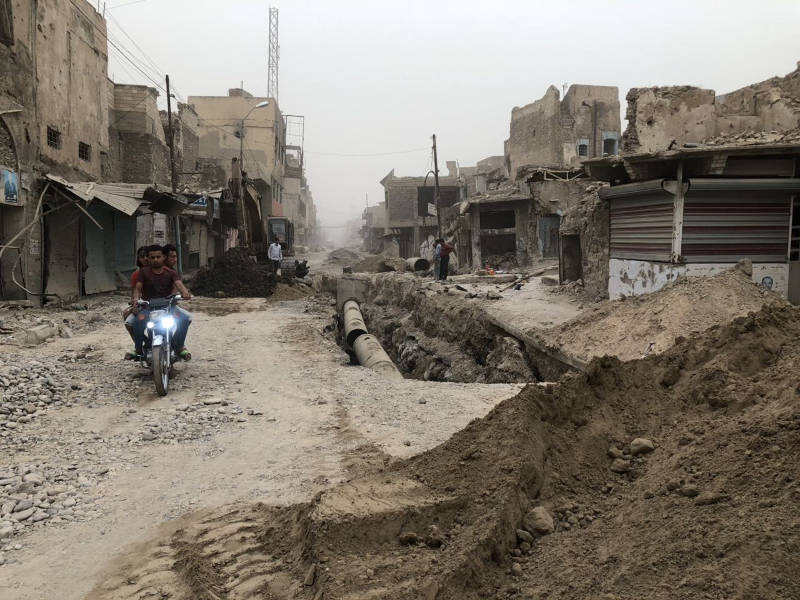Even while many Christians from Mosul will not permanently return, it is common for them to make frequent trips to the city. Though destroyed, Mosul remains the administrative capitol of the governorate. Whether Christians want to or not, the daily workings of life often require trips to the city.
Nadia is a 22-year-old Christian who was raised in Mosul. She refuses to return, but like many, regularly travels to the city. She said, “Mosul will never go back as it was; we are ready all the time to flee. The city looks pale.”
Although she would prefer not to travel to Mosul, she wants a university degree. “That is the sacrifice, going to Mosul. Kurdistan didn’t offer us anything, still the private college is available and need a lot of money,” she explained. For this reason, she braves not only the dangers of Mosul itself but also the possibility of harassment at rival militia checkpoints surrounding the city. “Checkpoints are good with us unless there are Arabs with us at Kurdish check points, and vice versa.”
Despite these challenges, Nadia has determined that ISIS would not take her education from her as they did her city. “The level of education is too low at Mosul university, because we attend only three days a week. At the end, everyone looks for the certificate, that’s the most important thing.”
Akram is another Christian from Mosul who refuses to live there, but travels to the city in order to maintain employment. When he looks at the city he once called home, all he sees is sadness and painful memories. “We as Christians don’t have a future in Iraq,” he said.
He is particularly concerned about West Mosul. The intense destruction that this city experienced hides the ISIS militants who remain there, threatening the security of the rest of the city and governorate.
“I think West Mosul [has] two concerning points. First is the destruction; second is security,” explained Akram. “The government doesn’t admit that ISIS is still there… Following up the victory [announcement], nothing has happened. It was supposed to have new development system after the military success. Unfortunately, none of that has happened.”
Dave Eubank, a Free Burma Ranger who participated in the liberation of Mosul, shared with ICC how security and development are intertwined in Mosul. He said, “Even as people slowly try to move back in and rebuild in some parts of the west, ISIS sleeper cells launch intermittent attacks and rival militias raise tensions.”
Without a doubt, the situation in Mosul has improved. It’s no longer run by ISIS. But the wounds that ISIS left behind run deep. Without security or reconstruction, Christians simply aren’t taking the risk to make Mosul their home again.
For interviews with Claire Evans, Regional Manager, please contact Olivia Miller, Communications Coordinator: [email protected]

